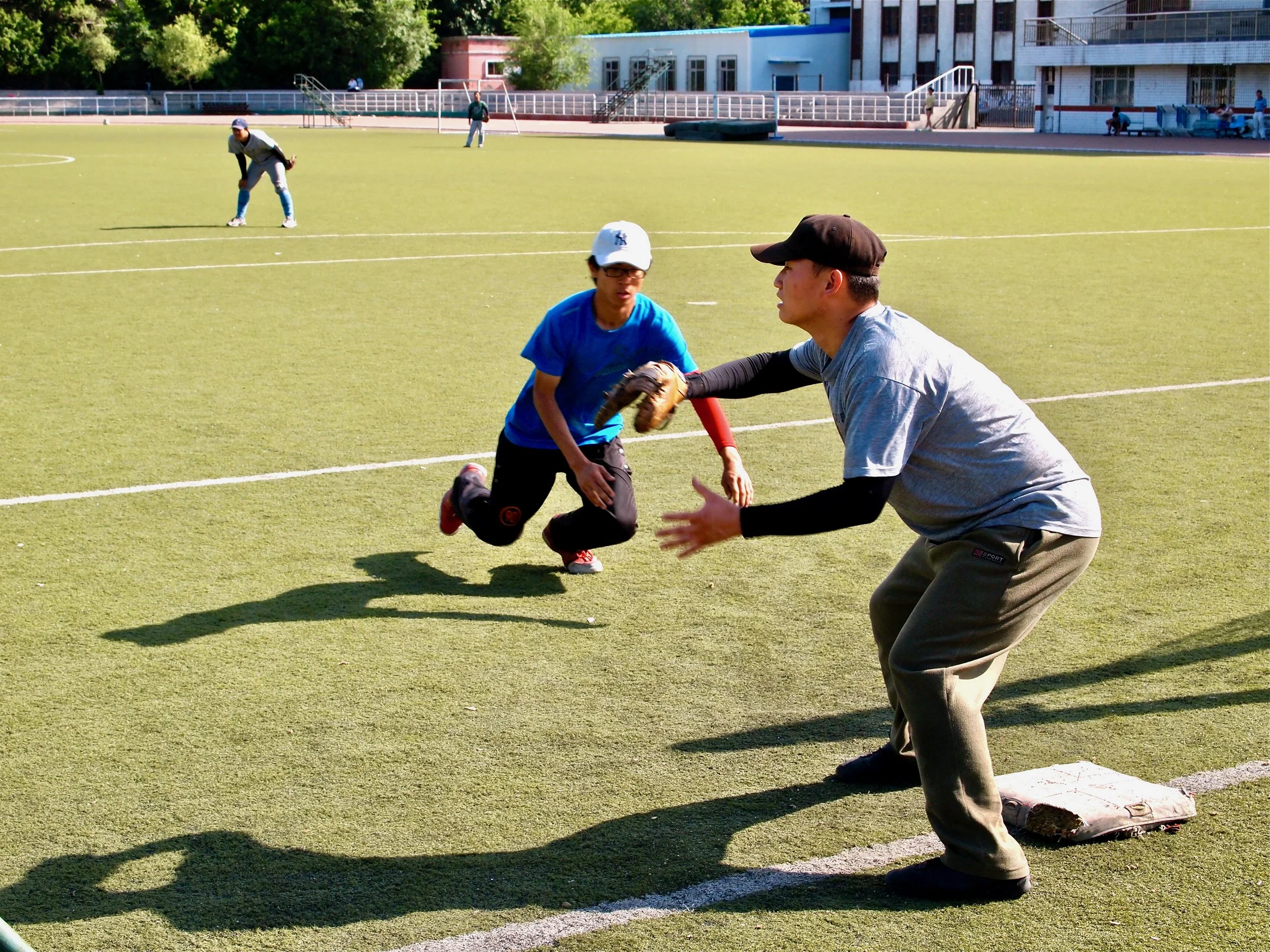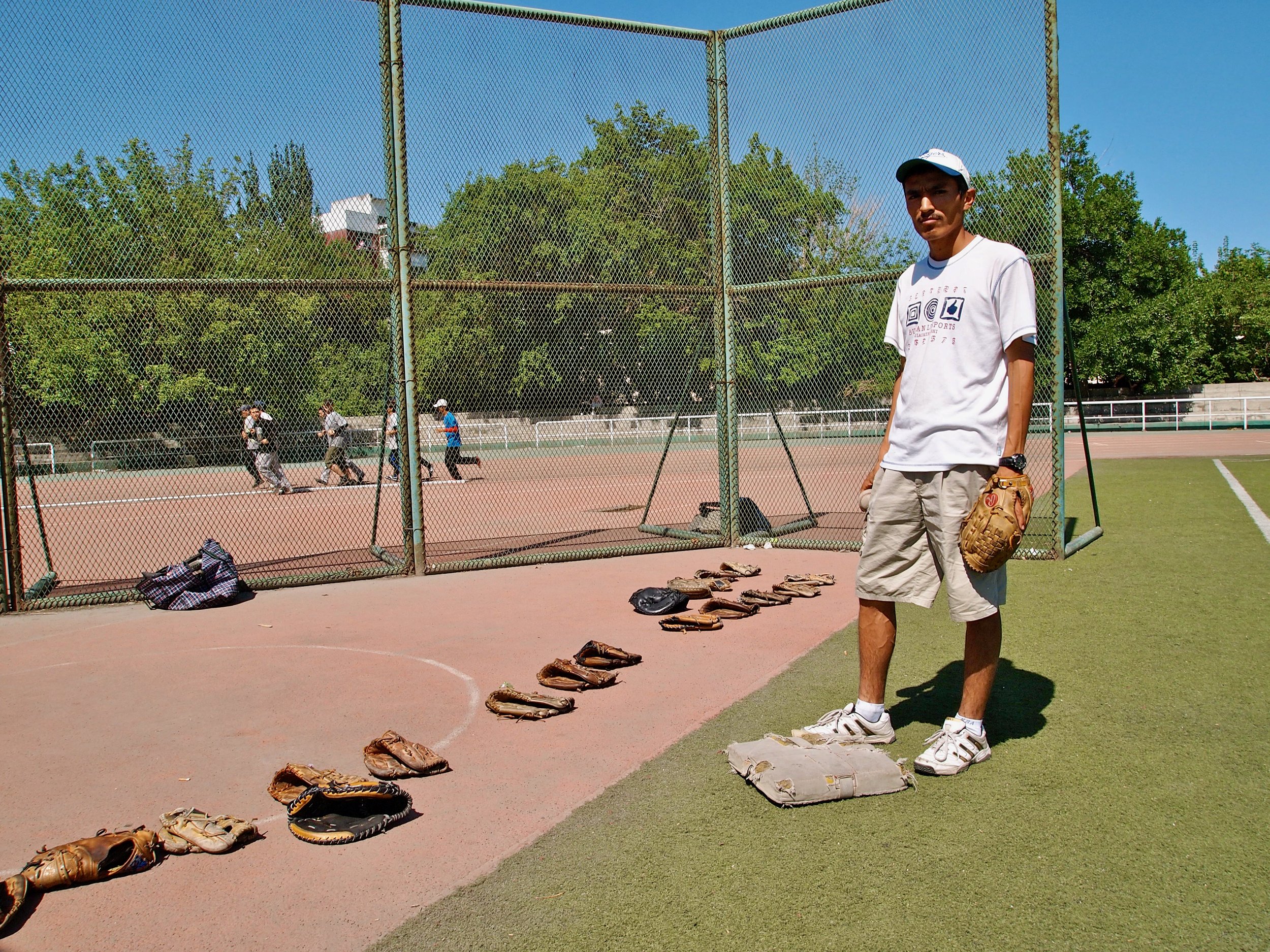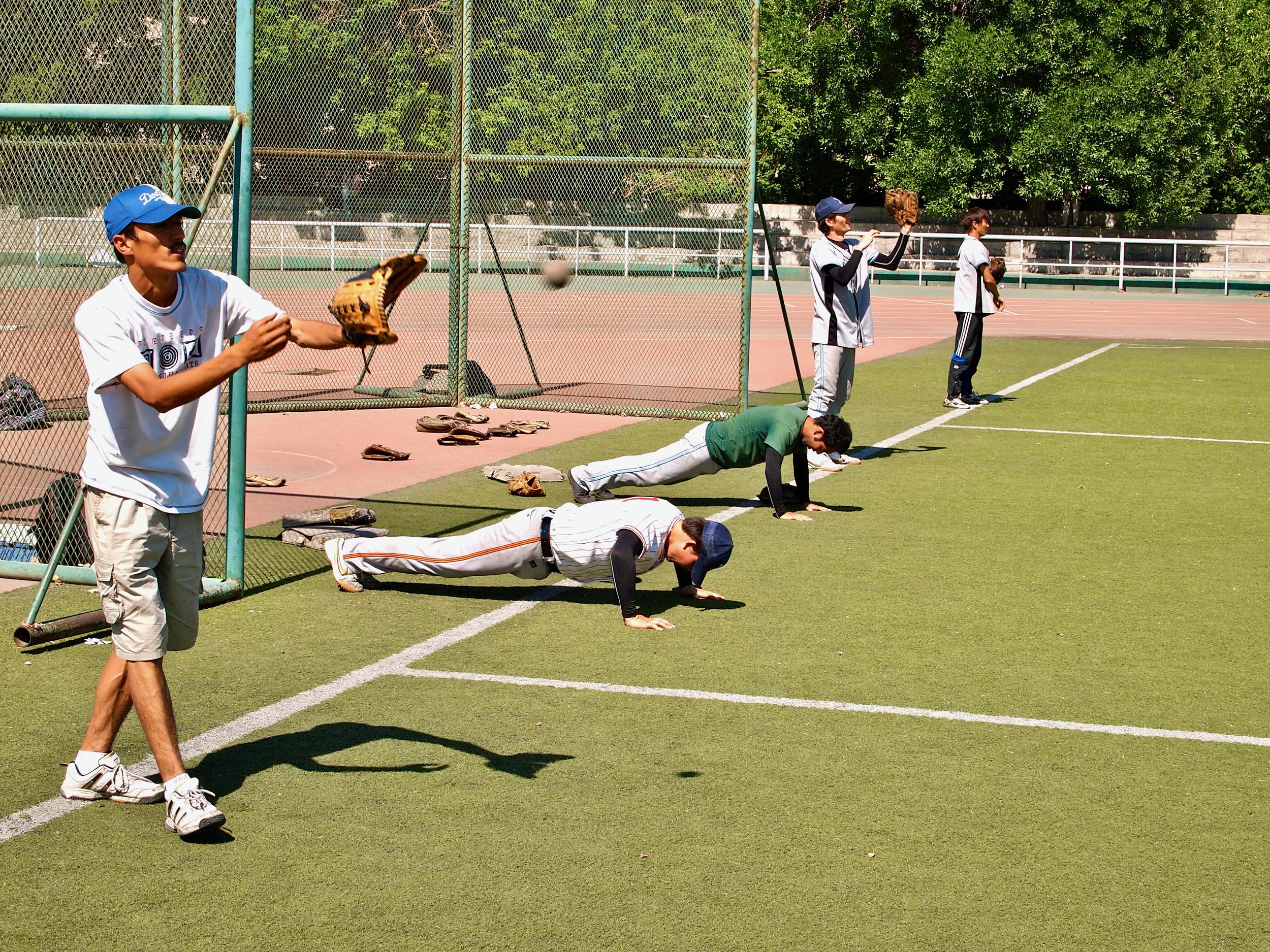
FIGHTING ETHNIC TENSIONS WITH A BASEBALL BAT
In Urumqi, a Chinese city divided by deadly racial violence and suppression of its muslim Uyghur population, an ethnically mixed baseball team is training to win the national championship. Against all odds.
This feature was written in 2010, when tensions between the Han Chinese and Uyghur population had already turned violent.
“Baseball isn't too big in China just yet,” says Parhat Ablat (23), the coach of the Urumqi University baseball team.
It’s an understatement. Ablat’s team is the only one in the massive Xinjiang region in far northwestern China. The nearest team to compete against is over two thousand kilometers away, in Qinghai province. That makes playing a real competition tricky.
The situation is even more dire for the Xinjiang Airplane Cats, as Ablat’s team calls itself. The nearest real baseball pitch is also over two thousand kilometers away. The Cats have to practice their baseball on a soccer field.
The Cats are special. Not just because they are the only thirty persons playing baseball in Xinjiang. The real remarkable thing is that it’s the only sports team made up of both Han Chinese and Uyghurs. This, in a region that is increasingly divided along ethnic lines between Han Chinese and the Uyghurs.
“When I started to coach the team three years ago, I just carried a table outside on campus and sat behind it,” says Ablat. “I put up some baseball posters around the table, and a couple of chairs. That's all it took for people to start asking me questions. I was able to convince most of the players I recruited at that time by explaining that joining the baseball team would mean an almost sure shot at playing in a national tournament, as we qualify easily by being the only team in Xinjiang. Plus it doesn't cost much to play. It's definitely cheaper than going to bars.”

The first months were tough. Ablat: ,,The Han people and the Uyghurs on the team didn't mix. They didn't talk to each other, not even when playing in the same team on the same field. All they did was complain about the others.''
Ablat's solution: get tough.
,,Whenever I see two players argue now, I make the entire team do ten laps around the field. Or I'll order them to do fifty extra push-ups. I want them to be serious about the game and to not be distracted by all these tensions that are present in this city.''
The team can't afford not to focus on the game, because something big is coming up: next week the Cats might be playing a real game against an actual opponent. That's when the National University Baseball Championships kick off in Shanghai, 3.300 kilometers away on the other side of China.
It’s been three years since the Cats played a real game.
Usually, it's just practice games against fellow Cats. Ablat: “This upcoming tournament is really a big thing for us. It's been our sole focus for the past year. We all want to go to Shanghai and don't involve ourselves with the violent tensions that have erupted in the city between Han and Uyghurs. This focus caused my players to see one another as team mates, instead of as a Han or a Uyghur.''

Ablat graduated with a physics major, scoring the highest grades in his class. “I'm pretty sure I could have become a famous Uyghur scientist,” he says with a smile. “There aren't that many of us, you know. But as a scientist, it would be difficult for me to actively work to improve the relationship between Uyghurs and Han Chinese. I think fighting for that is a better use of my energy than locking myself up in a lab. Coaching this baseball team really allows me to try to improve the situation in Urumqi for everyone here.”
He picks up a bat and shows the team how to hit a ball. The first few swings are with actual baseballs. Then, it's balls made out of old newspapers weighed down with a few layers of duct tape. There's no money to buy more real baseballs.
Ablat: “The university cancelled our funding. The athletics director is not a baseball man. He's into badminton.”
With only one week to go, it's not even sure the team will make it to the tournament in Shanghai. They need to raise an additional ten thousand yuan to make it there. But Ablat is ever the optimist. “We have to make it to Shanghai. And we will finish well within the top five at the tournament, meaning next year the university will fund us again. In the end, we will make baseball huge in Xinjiang. It's the ultimate game for team players: that's exactly what this region needs.”